You Will No Longer Be Charged Insane Amounts for Food at These Airports
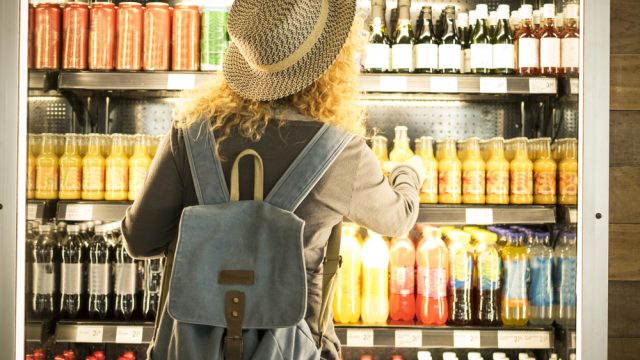
Even when you’re well prepared, seasoned travelers know that passing through an airport can be a drastically different experience for each trip. If you’re lucky enough to avoid any security delays and avoid an unexpected cancellation, it’s likely that you’ll pop into a store to pick up a bottle of water or grab a quick bite at a restaurant before your flight departs. But due to recent rule changes, airports are now getting rid of one popular purchase from airport terminals. Read on to see which item will no longer be there to see you off on your next trip.
READ THIS NEXT: The Least Trusted Major Airport in the U.S., According to Customers.
Airports have begun instituting major changes that affect the way people travel.
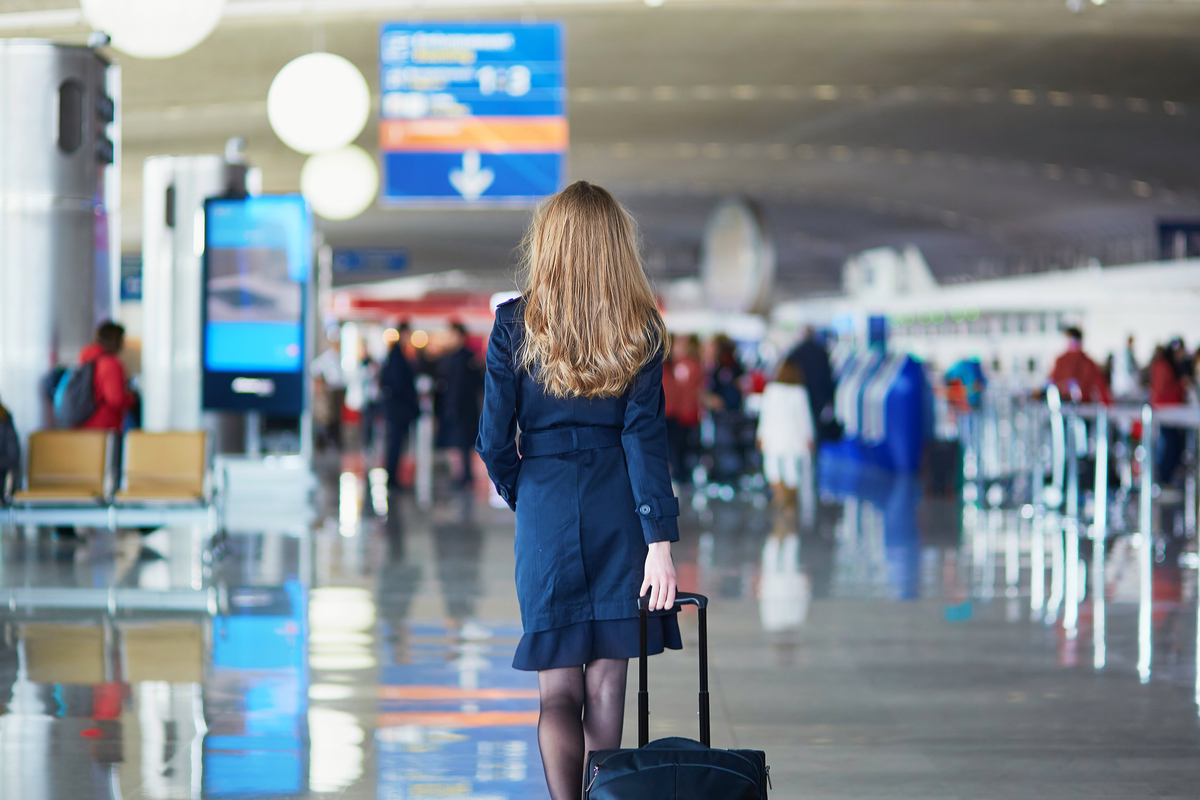
The struggle to create a more pleasant airport experience is ongoing, especially as travelers begin to take to the skies again after the pandemic curtailed most plane trips. One recent attempt comes from the Transportation Security Administration (TSA), which announced that it would be conducting a nearly $1 billion overhaul of technology at security checkpoints across the U.S. by rolling out new computed tomography (CT) scanning machines, The Points Guy reported. Nearly 1,000 of the units are expected to be installed and functional by the upcoming summer season.
According to the TSA, the new scanners will shorten the time spent in security lines by allowing agents to check luggage without the typical hassle of having to remove common items for inspection. “CT technology provides enhanced detection of threat items. Like existing CT technology used for checked baggage, the machines create such a clear picture of a bag’s contents that computers can automatically detect explosives, including liquids,” the agency explains on its website. “In the future, the goal is to keep laptops and 3-1-1 liquids inside of the bag during checkpoint screening. Under current screening procedures for this technology, laptops are allowed to remain inside the bag for screening.”
But officials are getting rid of one item popular with travelers after they pass security.
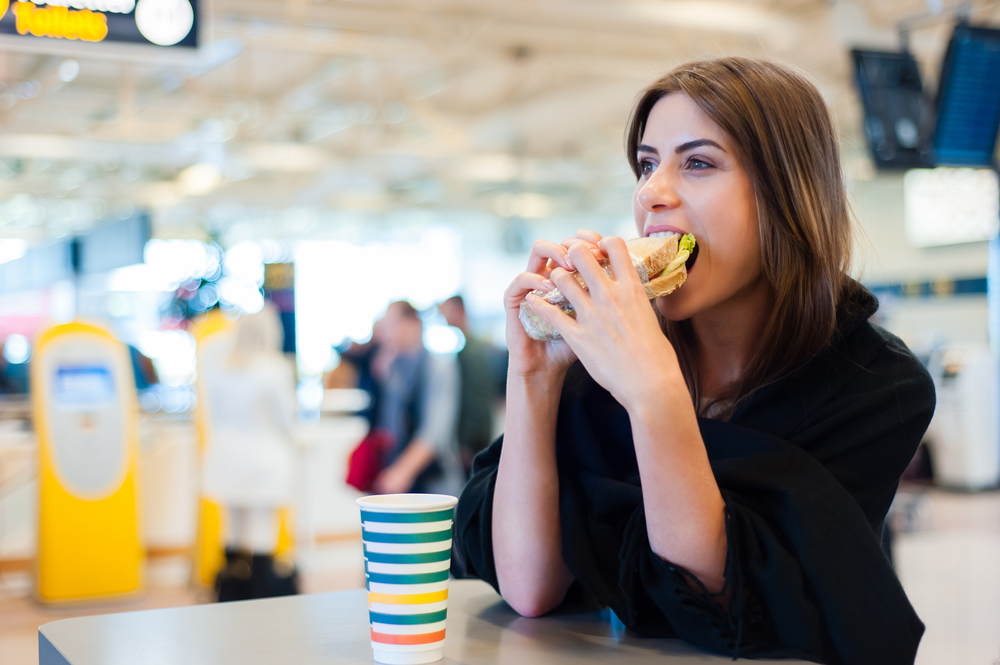
But it’s not just the security line that’s changing lately. On May 12, The Port Authority of New York and New Jersey announced that it was cracking down on vendors charging too much for concession items in airport cafes, bars, restaurants, and stores. The new rules—which will go into effect at Newark’s Liberty Airport and New York City’s LaGuardia and John F. Kennedy Airports—will ban exorbitantly expensive food and drink items by mandating that all purchases be within a reasonable range of “street prices” charged by businesses outside of airports. The changes also limit any surcharges on purchases to 10 percent.
“All airport customers should rightly expect that policies which limit the pricing of food and beverages at concessions will be followed and enforced,” Port Authority Chairman Kevin O’Toole said in the press release. “The Aviation Department’s new compliance and enforcement measures announced today make it crystal clear that all prices at concessions will be routinely monitored to ensure they are aligned with the regional marketplace. And all airport customers and concessionaires should expect tough pro-active enforcement going forward now that these revised standards are in place,” he added.
RELATED: For more up-to-date information, sign up for our daily newsletter.
The new rules come after customers’ complaints about pre-flight purchases went viral last summer.
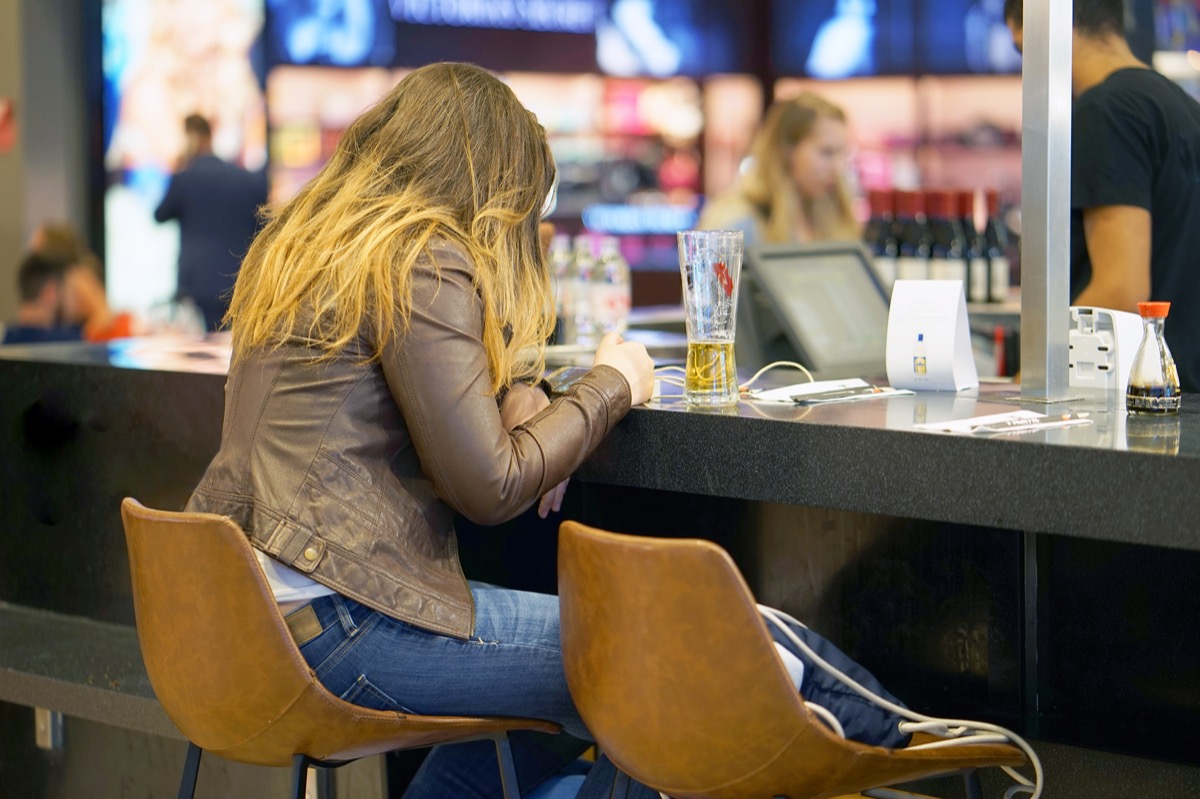
The pricing rule change comes after Port Authority’s inspector general issued an audit after travelers took to social media to complain about sky-high prices on pre-flight beverages, New York news outlet The City reports. The investigation found that 25 customers had paid more than $23 or $27 for different-sized beers at bars and restaurants managed by concessions company OTG. The operator—which also has locations in 10 other major airports, including Chicago, Orlando, and Washington, D.C.—explained that the high price tag was due to a data input mistake.
“As soon as this information was presented to us, we immediately contacted each customer and refunded the entire check of their order in addition to fixing the error on our end,” an OTG representative said in a statement, per The City. “The seasonal beer ran through the summer in over 130 restaurants and bars that we operate across the country, and this one location is the only place it was keyed in error.”
Officials urge anyone who sees price gouging violations to report them via social media.
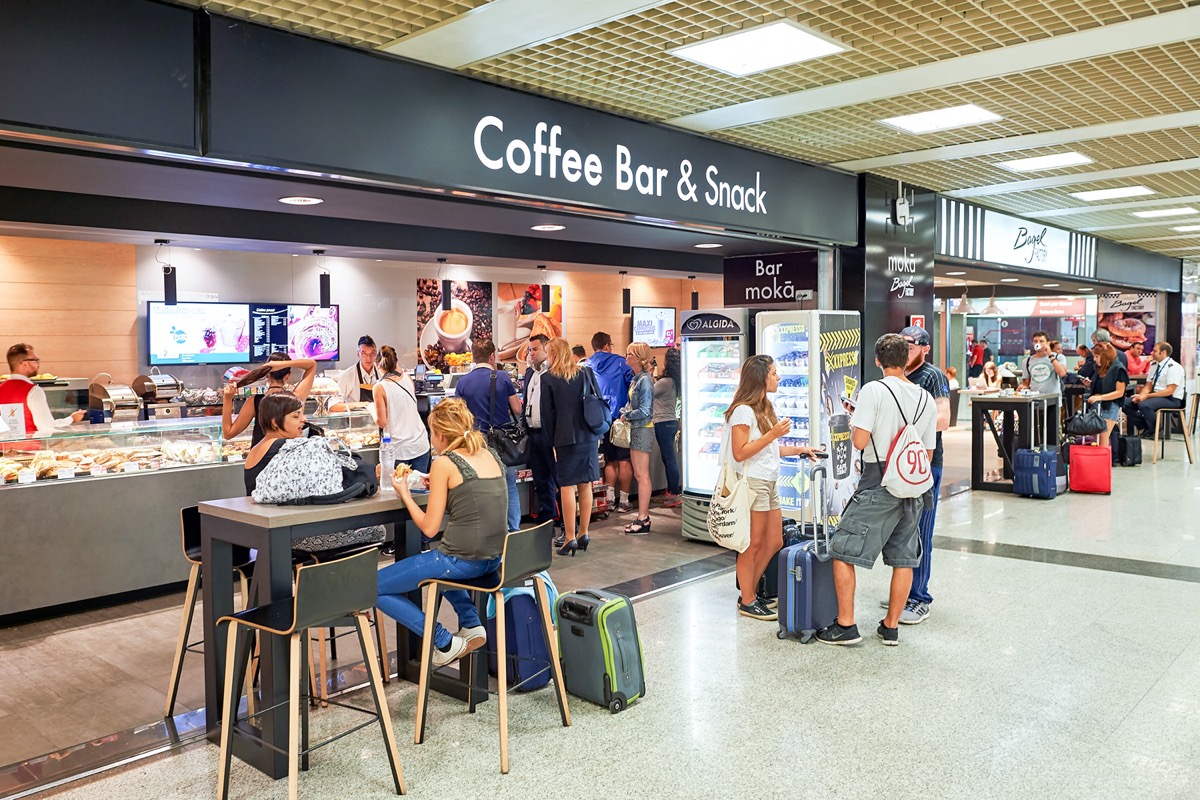
Besides being tied to non-airport prices, officials said the new rules would go beyond preventing overcharging for beverages by considering quality, preparation, portion size, quality, and branding when enforcing the pricing policy on all concessions. Airport businesses will also be subject to random spot checks, and the Authority urged any travelers who spot violations to report the issue on social media, The Washington Post reports.
“This evolution of the street pricing policy represents months of rigorous work by the Aviation Department with the assistance of the Inspector General to put in place the procedures necessary to make it successful,” Huntley Lawrence, Chief Operating Officer of the Port Authority, said in the press release. “Ultimately, this success ensures two objectives: that airport customers are not overcharged for the goods they purchase; and that concessionaires have a reasonable chance to thrive even as they face higher operating costs than off-airport businesses.”
READ THIS NEXT: If You’re Offered This at the Airport, Just Say No, Experts Warn.